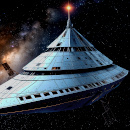I loved the two other books by R.F. Kuang that I read, so when I heard that she had a dark academia book coming out, I pre-ordered it. Then I received a prettier copy of Katabasis through the monthly subscription service Fairy Loot (paid link). Did the book live up to the hype I’d built in my head for it? Read on below to find out.
Here are my reviews of the other two books by R.F. Kuang that I’ve read:
Here is the blurb:
Two graduate students must set aside their rivalry and journey to Hell to save their professor’s soul, perhaps at the cost of their own.
Alice Law has only ever had one goal: to become one of the brightest minds in the field of Magick. She has sacrificed everything to make that a reality—her pride, her health, her love life, and most definitely her sanity. All to work with Professor Jacob Grimes at Cambridge, the greatest magician in the world—that is, until he dies in a magical accident that could possibly be her fault.
Grimes is now in Hell, and she’s going in after him. Because his recommendation could hold her very future in his now incorporeal hands, and even death is not going to stop the pursuit of her dreams. Nor will the fact that her rival, Peter Murdoch, has come to the same conclusion.
Rating: ★★★☆☆
The beginning of Katabasis delves immediately into Alice Law’s attempt to transport herself into Hell in the pursuit of her advisor whom she believes she accidentally killed. The magic in this world is build upon the concepts of logic and mathematical paradoxes, with each use requiring the drawing of mystical figures with special chalk. Like in Babel, the story takes place in our world but with a minor change. The magic in Katabasis is used for mostly scholarly purposes and an occasional show and has neither influenced great events nor been a fixture in mainstream society.
Unfortunately this novel didn’t draw me in as much as the author’s other works. The structure reminded me heavily of Dante’s Inferno, and there are certainly references to that classic work. However there are also tons of other scholarly literary references that I didn’t understand that presumably added to the depth of this story. For myself, I could follow the main thrust of the plot and Alice’s interactions with fellow student Peter, but any deeper themes that the novel was trying to convey were lost on me. I suspect that much of this book was influenced by the author’s own graduate school studies, so perhaps someone more knowledgeable in that arena may get more from this book.
The structure of the novel uses flashbacks heavily to explain Alice and Peter’s reasons for traveling to Hell, as well as their past relationship and their interactions with Professor Grimes. This worked well and gave me a nice reprieve from the depressing monotony of journey in the underworld.
This is a stand-alone novel and I’m glad that I read it, but it will sit on my list as my least favorite of R.F. Kuang’s books so far. I also thought it odd that the title is never explained within the text. I had to look it up – katabasis is a term for a descent into the underworld in classic mythology and literature, so that’s appropriate.
Have you read any of R.F. Kuang’s other books? Which one was your favorite? Let me know in the comments.
You can find more of my book reviews here.




















































 Salvage – a flash fiction science fiction story with a winter holiday theme
Salvage – a flash fiction science fiction story with a winter holiday theme